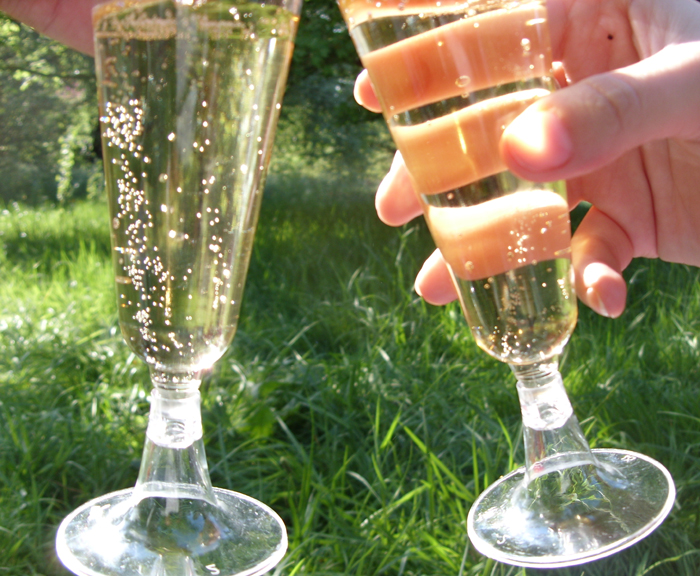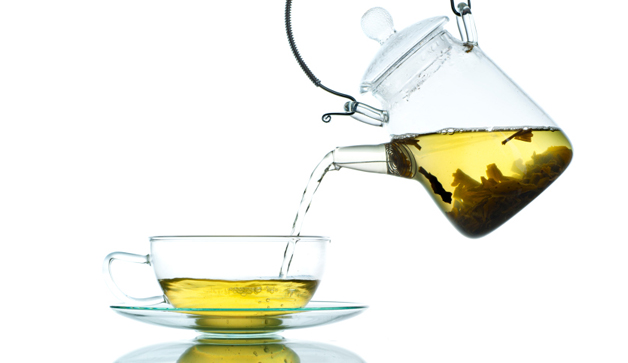We’ve all heard that eating brought on by stress can be a bad thing. But according to Woman’s Health Magazine, eating certain foods can help you cope, reduce stress and offset the negative effects of all that pressure. So the next time you’re feeling overwhelmed, consider these foods:
Almonds, Pistachios & Walnuts
Almonds are rich in vitamin E, an antioxidant that strengthens the immune system. Almonds also contain Vitamin B which is known to help your system deal with stress. Shell pistachios or crack walnuts have been found to reduce blood pressure — both under stress and normal conditions.
Avocados
Avocados are high in potassium and contain monounsaturated fat, both of which can help to lower blood pressure. Potassium is one of the best ways to reduce blood pressure according to the National Heart, Lung, and Blood Institute and just half an avocado offers 487 milligrams, more than you’ll get from a medium-size banana. To get your avocado fix, try making your own homemade guacamole or avocado salad dressing.
Skim Milk
There is science to back up the old warm-milk remedy for insomnia and restlessness. Calcium can reduce muscle spasms and ease tension. Skim or 1 percent milk fat is preferred if you’re trying to reduce fat in your diet.
Oatmeal
Carbohydrates make the brain produce more serotonin, the same relaxing brain chemical released when you eat dark chocolate. Oatmeal contains carbohydrates but also is high in fiber, allowing the carbohydrates to be absorbed into your bloodstream gradually. The more slowly your body absorbs carbs, the more steadily the serotonin flows and the longer the mood-changing effect lasts. Plus fiber is an essential part of a healthy diet.
Oranges
When facing high amounts of stress, pouring a glass of orange juice or grabbing an orange or tangerine can help settle the nerves. The vitamin C in citrus fruits has been shown to boost the immune system, lower blood pressure and reduce stress hormones. For a refreshing and relaxing treat any time of the day, try mixing Syfo Original Seltzer with your favorite citrus fruit juice.
Salmon
The omega-3 fatty acids in fatty fish like salmon or tuna are a great stress-hormone reducer and also protect against heart disease. In addition to salmon, fatty acids can be found in eggs, yogurt, milk, and soy products.
Spinach
Spinach is rich in magnesium and 7 out of 10 people are deficient in this mineral. Magnesium can help lower your stress levels and not getting enough magnesium can bring on migraine headaches and fatigue. Just one cup of spinach provides 40 percent of your daily value—so try using it instead of lettuce on sandwiches and salads.
You can read the entire article on stress-reducing foods on the Women’s Health Magazine website.
 It seems you can get more than just kicks from champagne. In a new study, scientists at the Univ. of Reading have found that drinking one to three glasses of champagne a week may help offset or prevent the memory loss associated with aging. They also found that champagne could help delay the onset of degenerative brain disorders, such as dementia.
It seems you can get more than just kicks from champagne. In a new study, scientists at the Univ. of Reading have found that drinking one to three glasses of champagne a week may help offset or prevent the memory loss associated with aging. They also found that champagne could help delay the onset of degenerative brain disorders, such as dementia.
The active agents are the phenolic compounds found in champagne. These compounds can improve spatial memory, which is responsible for recording information about one’s environment and storing the information for future use. The compounds work by modulating signals in the hippocampus and cortex while favorably altering a number of proteins linked to the effective storage of memories in the brain. These proteins are known to be depleted with age, making memory storage less efficient and leading to poorer memory in old age as well as conditions such as dementia. By slowing this depletion, champagne may help prevent the cognitive losses that occur with both typical brain aging and degenerative diseases.
White wine doesn’t carry the same benefits. Champagne has relatively high levels of phenolics compared to white wine because of two red grapes — Pinot Noir and Pinot Meunier — that are used in its production along with the white grape Chardonnay. Red wine has also been shown to have a positive effect on memory because of the flavonoids in it.
Of course, as with anything to do with healthy eating, moderation is always best. You can derive the memory benefits of champagne from just one to three glasses a week and previous research has shown that two glasses of champagne a day may be good for your heart and circulation, reducing the risks of suffering from cardiovascular disease.
You can read the entire article on the health benefits of champagne on the Laboratory Equipment website.
 Green tea has generally been considered a healthy beverage. Research has linked its potent antioxidant — epigallocatechin gallate, aka EGCG — to health benefits such as reduced risk of stroke, heart disease, cancer and diabetes. But as this article on the Prevention website points out, not all green tea is the same, especially when comparing brewed tea with the bottled varieties.
Green tea has generally been considered a healthy beverage. Research has linked its potent antioxidant — epigallocatechin gallate, aka EGCG — to health benefits such as reduced risk of stroke, heart disease, cancer and diabetes. But as this article on the Prevention website points out, not all green tea is the same, especially when comparing brewed tea with the bottled varieties.
In an independent test, ConsumerLab.com closely examined green tea products and found that some bottle varieties are just little more than flavored water and the leaves may be contaminated with lead. The lab tests also focused on how accurately the product labeling reflected the amount of antioxidants actually in the teas, whether there were contaminants in the tea and also tested the amount of caffeine.
None of the four green teas selected by ConsumerLab listed the amount of the antioxidant EGCG and that’s no surprise because this antioxidant is lacking in these products. The one brand to list an amount of any kind of antioxidant, Honest Tea Green Tea with Honey, only contained 62.7% of the 190 mg of catechins the 16.9-oz bottle touted. It also had the second highest amount of EGCG of the four bottled green teas tested by the lab with 27.2 mg per 8 oz. Harney & Sons Organic Green had the most EGCG with 46.8 mg and Diet Snapple Green Tea had the least amount at 3.5 mg. All of the bottled teas contained some type of sweetener.
When it comes to brewed teas, green tea brewed from loose leaves had the best and most potent concentration of EGCG. However, some green tea bag brands — including Bigelow and Lipton Celestial Seasoning’s K-Cup — also contained concentrations of lead. The study also found that decaffeinated green tea bags, including tea from Salada and Bigelow, did not contain measurable amounts of lead.
So while green tea can be a healthy beverage, it’s important to make an informed choice by knowing what’s in the product. You can read the entire Prevention.com article here.
To maintain optimal health it’s always a good idea to avoid processed foods whenever possible, because many of the additives in these foods can have negative or even toxic effects on the body. MSG (monosodium glutamate) is an additive that has been implicated in food allergies and other maladies. Although tolerance for MSG varies from person to person, reports of adverse reactions such as skin rashes, headaches, moodiness, irritability, IBS, heart palpitations, depression and more have been documented.
MSG is found in many processed foods, so be sure to read labels carefully. MSG is often “hidden” behind phrases like natural ingredients, natural seasonings, natural flavors or is listed specifically as maltodextrin, gelatin, glutamic acid, citric acid, hydrolyzed yeast, protein isolate, textured protein, hydrolyzed protein, hydrolyzed vegetable protein (HVP), soy protein extract, autolyzed plant protein, autolyzed yeast, yeast extract, sodium caseinate and modified corn starch.
Syfo Original Seltzer is absolutely free of all additives. The all-natural flavorings in our Naturally-Flavored Sparkling Waters are made from the oils selectively extracted from the peels of fruit. They are extracts and not straight compounds or emulsions. Depending on the flavor, the process uses only vegetable glycerin/and or ethyl alcohol which are both GRAS (Generally Recognized As Safe) by the FDA.
Hydration for Good Health
Drink Healthy Beverages for HydrationWATER IS ESSENTIAL FOR GOOD HEALTHBeyond our survival, water is also critically important to our daily health. Many of us routinely feel the effects of too little water. Mild dehydration for instance is one of the most common causes of daytime fatigue. A very small drop in body water can cause problems with short-term memory or the ability to learn in school. Age-related changes make older adults even more vulnerable to shifts in water balance and can also result in dehydration. Because seniors often have a reduced sense of thirst, dehydration is one of the most frequent causes of hospitalization after age 65. For everyone, water is essential for both your metabolism (the way your body converts food into energy) and detoxification (eliminating the waste in your body). Water Facts
WHAT BEVERAGES ARE HEALTHY TO DRINK
The best kinds of beverages to drink are those made with purified water and contain no additives. That’s because things like sugar and caffeine can actually dehydrate you no matter how much you drink. Healthy beverages include purified bottle water as well as seltzers and sparkling waters that can contain no sugars, artificial sweeteners, caffeine, sodium or preservatives. How much water should I drink?The amount of water you should drink varies by your weight and level of physical activity, but this formula is a good rule of thumb: Your weight in pounds ÷ 2 = the ounces of water you need OTHER HYDRATING FOODSYou can also stay hydrated through the food that you eat. Other hydrating foods include asparagus, carrots, watermelon, cantaloupe, blueberries, grape, cabbage, cauliflower, oranges, apples, bananas, grapefruit and tomatoes. DRINK AND STAY HEALTHYDrinking water and healthy beverages can make a big difference in your life. For more health tips, visit our health section. |



 "I bought Syfo's Lemon-Lime at Publix last week in Nashville and I’ll always remember my first time! So crisp and refreshing with the perfect amount of flavor. Sign me up!"
"I bought Syfo's Lemon-Lime at Publix last week in Nashville and I’ll always remember my first time! So crisp and refreshing with the perfect amount of flavor. Sign me up!"
